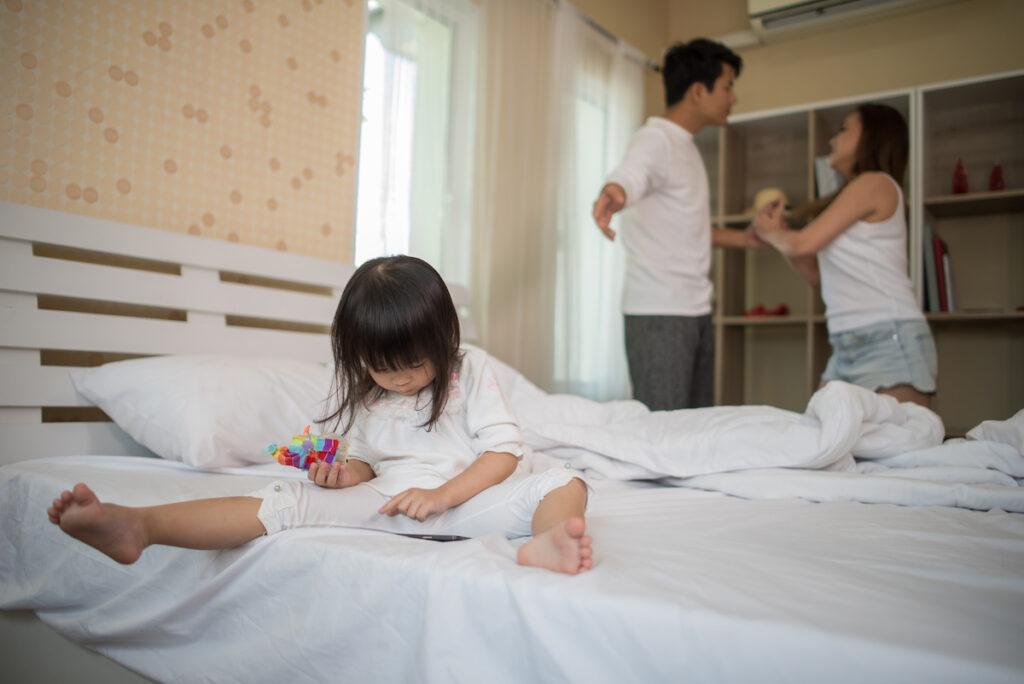Parental breakup is one of the saddest realities that many families face. It’s a complex situation not only for the couple involved, but most especially for the children who are caught in the middle.
How are the parents supposed to co-parent their children if they don’t live under the same roof? What is co-parenting in the first place?
Let’s break down the terms.

When we say parenting, we assume that it’s about the child, says Conscious Parenting coach Kit Malvar Llamas. “But parenting is really about parenting our inner child. Our self-awareness impacts the way we raise our children. If we don’t know ourselves, it will be hard for us to parent someone else.”
Knowing our child—their personalities and temperaments—is also very crucial. “Our children came through us, but we don’t own their psyche. We can’t assume that we should raise our children the way we were raised,” says Llamas.
Co-parenting means the mother and the father agreed to raise and guide their child but not in the same environment. Is this possible? Yes, says Llamas—if it is clear for the parents why they have to separate and if they are willing to deal with their emotional baggage.
Children between ages zero to seven might not understand the complexity of the situation. However, they will feel a change in energy as parents connect with their children through feelings. “The feeling of safety and security has to be there, the connection with the child. If the situation is not properly processed by the adults, it’s going to be traumatic for the child,” says Llamas.
It’s the responsibility of the parents—not the child—to make sure the new setup works. Llamas says, “Our kids never asked to be born. It was our choice. They don’t owe us any responsibility at all. Don’t use your children as pawns in your relationship. Be the adult in the relationship.”
“Before breaking the news to your child, make sure you’ve done your inner work as the adults in the relationship. This way, the children will feel safe, secure, seen, and validated despite the breakup.”
Llamas gives advice on how separated couples could successfully co-parent their child:
1. Take an honest assessment of the situation. “It should be clear to both parties what and how they contributed to co-creating the situation—instead of playing the blame game. There has to be accountability.”
2. Know your triggers. This requires a lot of self-awareness of your own strengths and weaknesses. “You’ll have to do your inner work,” says Llamas. “Identify your unhealthy patterns and stop them so you don’t do the same in your next relationship, and you don’t hurt your child.”
3. Agree on parenting rules and values. “Both of you have to know your roles in guiding your child. There has to be agreements—the negotiables and the non-negotiables.”
4. Communicate regularly. “You can’t play pass the message, ‘Oh, you tell your mom…’ or ‘You tell your dad…’ They have to regularly communicate as co-parents of the child,” says Llamas. “They have to review how the arrangement is working out. They should ask themselves, ‘Are we giving the support that our child needs to feel safe, to feel validated, to feel seen, to feel heard?’”
5. Be clear about boundaries. For instance, the amount of financial support and the frequency it’s given, the time the child spends with each parent, with the grandparents etc. “Always have the best interest of the child at heart,” she says. Sometimes, the situation gets complicated when there are other people in the picture—the in-laws, for instance. “Couples need to establish boundaries: ‘This is between the two of us,’” advises Llamas.
6. Older children need to be involved in co-creating agreements. Honor your child’s thoughts and feelings. “You can’t expect him to just accept the decision, even if you say it’s for his own benefit. He may feel angry, let him be. Make him a part of the conversation. Give him time to transition to the new setup,” Llamas says.

Leave a Reply